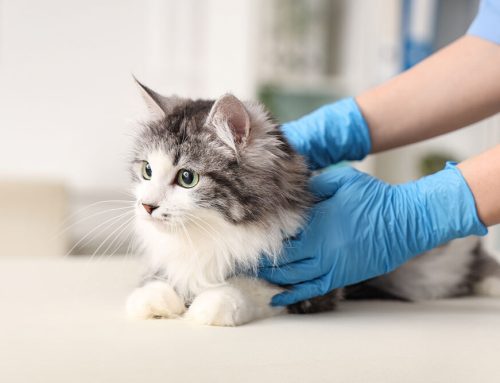Your pet’s diet is one of the most important decisions you can make for your beloved companion. With so many options available, from dry kibble to raw diets and everything in between, navigating the pet nutrition world can be overwhelming. Learn how to feed your dog or cat a nutritious diet by following this simple five-question shopper’s guide from Homestead Animal Hospital.
How much can you budget for your pet’s nutrition?
Understanding your budget is crucial when choosing your pet’s diet. While some premium brands may offer high-quality ingredients, they often come with a hefty price tag. Alternatively, discount diets may contain cost-cutting fillers and artificial ingredients, which lower the overall nutritional value. Consider your financial constraints and look for a diet that balances quality and affordability. Remember, investing in your pet’s health through proper nutrition can help prevent or lower future veterinary expenses.
Does the pet food provide complete and balanced nutrition?
When evaluating pet food formulas, choose brands that use high-quality, recognizable ingredients. Look past pretty packages that feature colorful produce and buzzwords, such as “holistic” and “human grade,” and examine the nutritional content and guaranteed analysis. A nutritious food includes whole animal protein, fruits, vegetables, and whole grains within the first five ingredients. Additionally, check for nutritional adequacy statements on the packaging, which indicate that the food meets the standards set by organizations, such as the Association of American Feed Control Officials (AAFCO), for a complete and balanced diet. This statement also tells you whether the food is formulated for a specific life stage, such as growth and lactation, adult maintenance, or for all life stages.
Will this pet food be convenient to source, prepare, and store?
While some pet owners enjoy taking extra time to build their dog’s or cat’s bowl, others may be surprised to realize how much time, space, and effort some diets require. Consider each diet’s convenience, including:
- Sourcing — Is the diet easy to locate, purchase, or ship? Will you have to shop for various components or does the food provide complete and balanced nutrition? Can the food be bought in bulk or only in small batches?
- Storage — Dry, dehydrated, and freeze-dried foods are shelf stable, but wet food must be refrigerated after opening. Fresh, raw, and homemade diets are perishable and must be frozen for shipment and storage.
- Preparation — Is the food scoop and serve or is it necessary to weigh, rehydrate, thaw, or cook the food?
- Potential waste — Fresh, raw, and homemade foods contain no preservatives and must be consumed within a few days after preparing, thawing, or opening the package.
Does your pet have a health condition that requires specific nutrition?
Pets with health conditions, such as allergies, digestive issues, kidney disease, and obesity, should receive tailored nutrition to support their unique needs. Therapeutic diets—available with a prescription through our online store—are specifically formulated to address common health concerns and may help prevent illness and provide your pet with a longer life. Consulting with our veterinarians can help determine the best diet for your pet’s individual needs and ensure that nutrition is part of your pet’s treatment or management plan.
Does the pet food manufacturer adhere to ethical sourcing and sustainability practices?

Pet food production should support a healthy ecosystem and humane food animal treatment. Look for manufacturers who are thoughtful about creating sustainable pet food packaging, sourcing meat products from ethical farmers, and selecting produce and grains from farms that use environmentally safe pest and weed control. By researching each pet food manufacturer’s business practices, you’ll not only be supporting your pet’s health but the planet’s health as well.
Choosing the right diet for your pet is a decision that requires careful consideration. By asking yourself these five questions and seeking guidance from our Homestead Animal Hospital veterinarians, you can be assured that your pet is eating a diet that will promote their health and happiness for years to come.
At Homestead Animal Hospital, we support every aspect of your pet’s health and wellness journey—right down to the food that fills their bowl. For additional nutrition questions or to schedule an appointment to discuss your pet’s weight, health, or diet, contact our team.
















Leave A Comment